American Hybrid Plum : KAHINTA Dwarf (Krymsk 1) (Orchard Grade)
$44.95
An 'orchard grade' is a tree that may be somewhat shorter, slightly crooked, or a bit scratched, or for some other reason is not a perfect front lawn specimen. These trees will work just as well in an orchard as a first or number one would, since they still produce the very same fruit.
Kahinta, which was introduced in 1912, is one of the more uncommon hybrid plums developed by Danish plant breeder N.E. Hansen. During his time at the South Dakota State College, Hansen concocted numerous cold-hardy fruits, including a number of hybrid plums. He gave many of his introductions Sioux names, such as Pembina, Toka, and Waneta. Kahinta is a Sioux word meaning 'to sweep'. Although we fail to follow the logic behind this name, it could possibly sweep you off your feet when you bite into a tree-ripened Kahinta. At any rate, the ultra juicy, sweet 'n spicy amber flesh makes it a refreshing and enjoyable experience. Medium to large size, purple-red plums keep surprisingly well in the fridge. Compact tree begins bearing early and continues with consistent abundance.
NEEDS A POLLENIZER | ZONE 3 | HARVEST: EARLY-MID SEPT.
Only logged in customers who have purchased this product may leave a review.
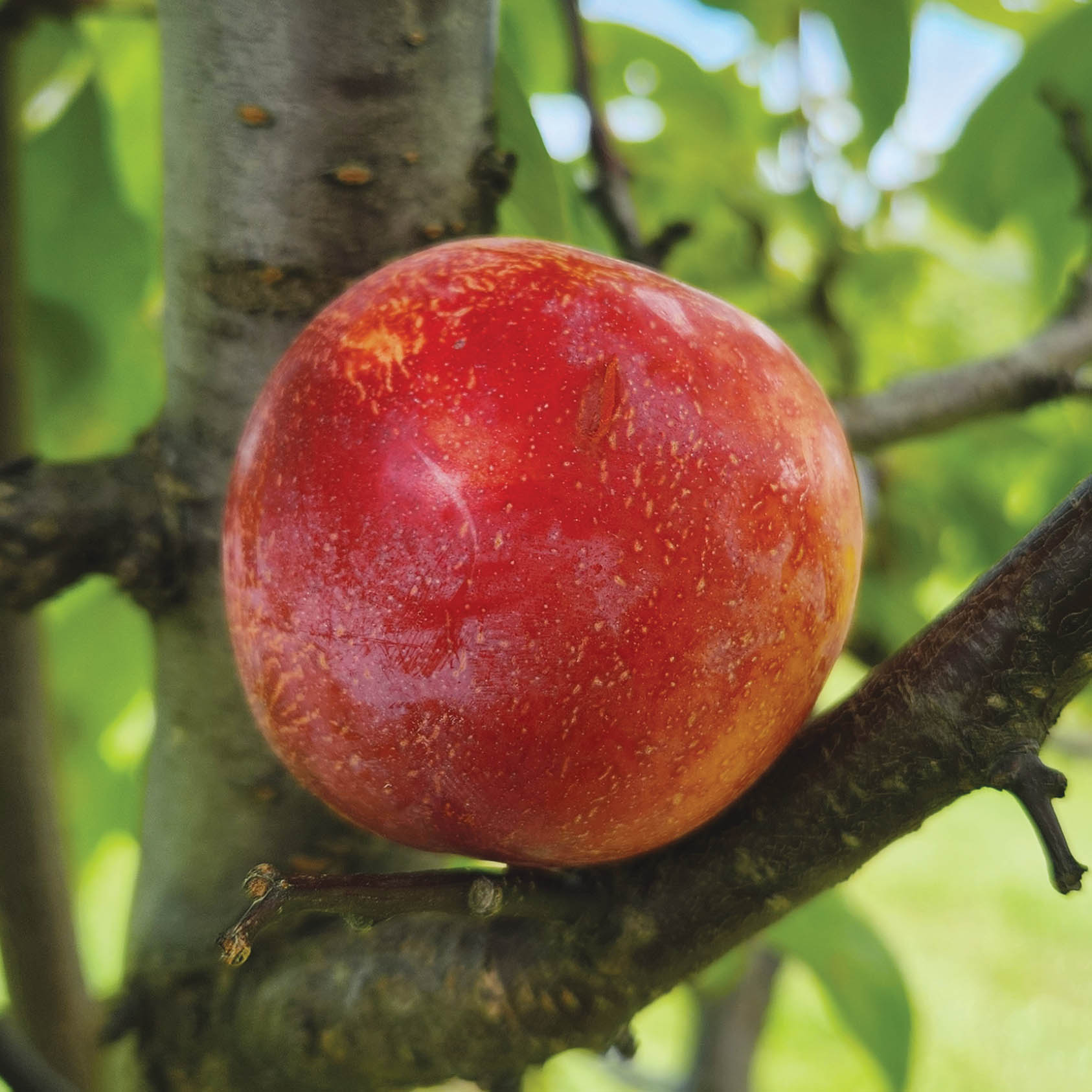
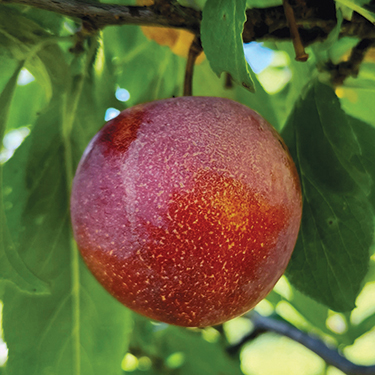
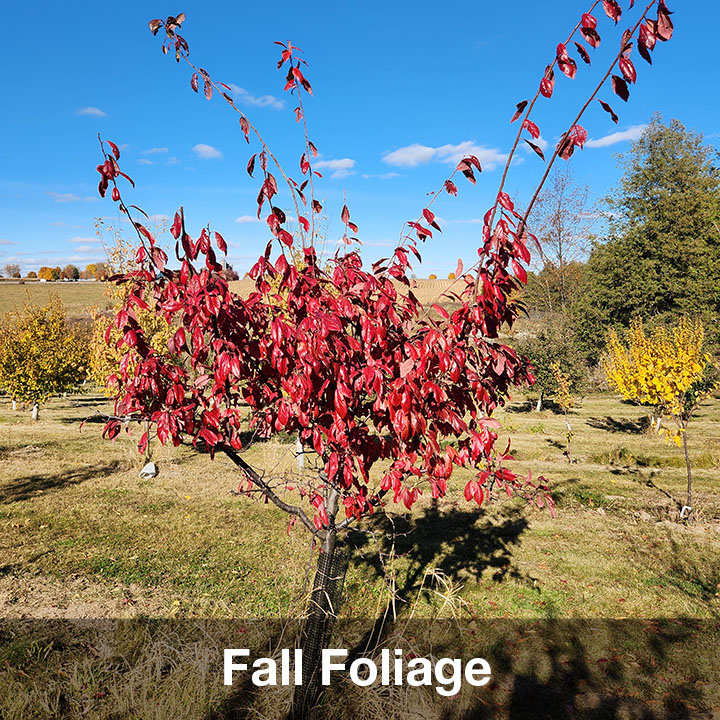
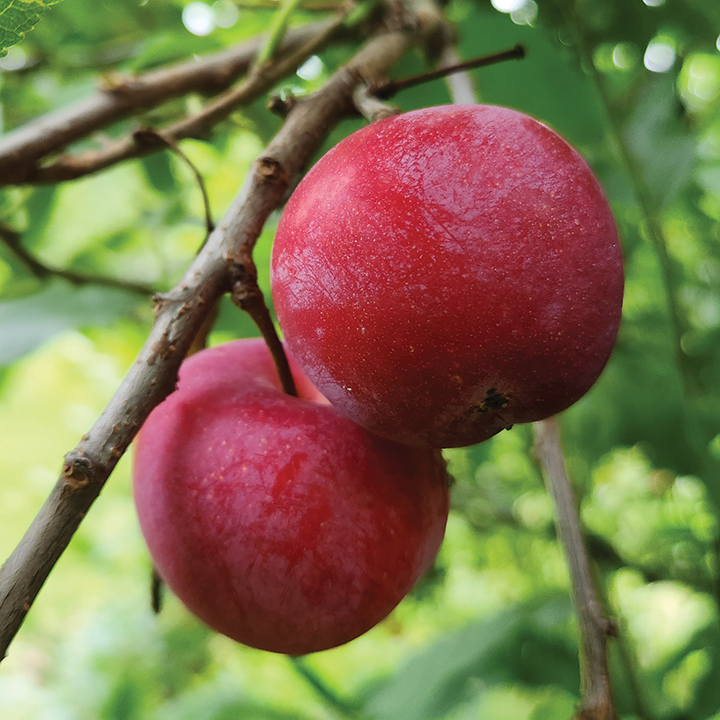
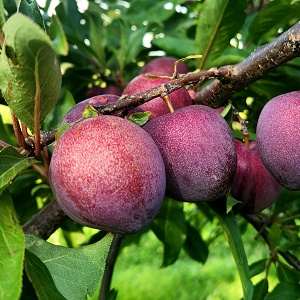
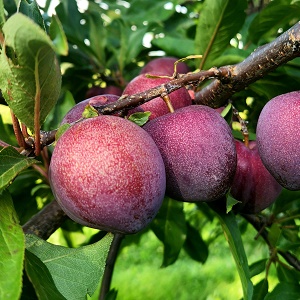
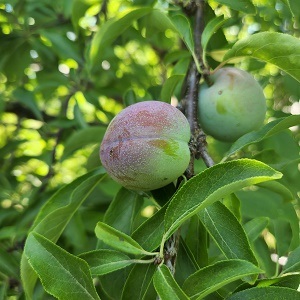
Reviews
There are no reviews yet.